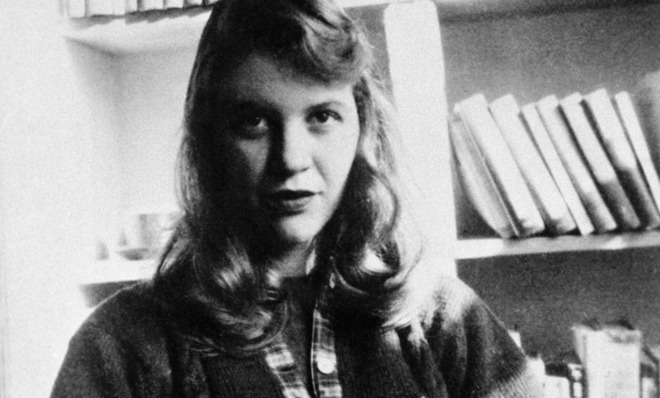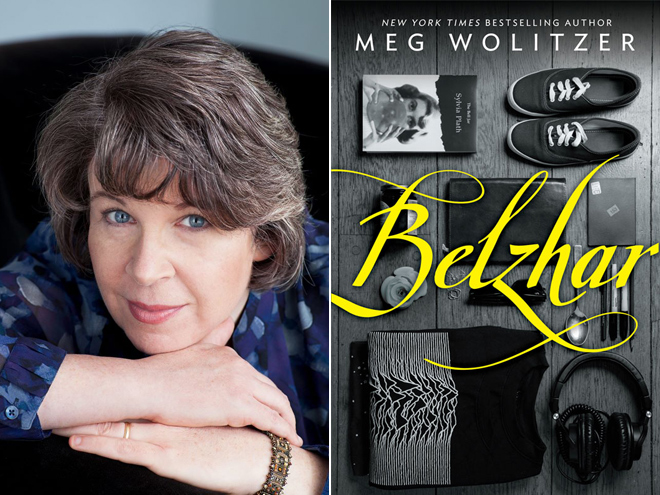Acclaimed novelist Meg Wolitzer on literature, feminism, and Sylvia Plath
"Will people call this women's fiction? Will I be disparaged because I wrote a YA book?"

A free daily email with the biggest news stories of the day – and the best features from TheWeek.com
You are now subscribed
Your newsletter sign-up was successful
More than 50 years after her death, Sylvia Plath continues to have a unique hold on the minds of teenage girls. She was pretty and accessible; highly emotional and ferociously intelligent; and, in her own words, a woman who "just [wanted] so badly for the good things to happen."
Acclaimed novelist Meg Wolitzer is going for Plath-like impact in Belzhar, her first YA novel, which debuted last week. "For a certain kind of teenage girl, at least when I was younger, Plath spoke to our painful feelings that were hard to describe to other people," said Wolitzer in a recent conversation with The Week. "Of course you related to her. Every bookish girl did. I didn't struggle with depression, but I sort of flirted with the idea of thinking, like everybody, about mortality and feeling fragile. All those things that are coming-of-age rituals."
Belzhar — a title that deliberately evokes Plath's The Bell Jar — comes off the heels of Wolitzer's widely acclaimed 2013 novel The Interestings. The new book follows Jam Gallahue, a 15-year-old girl, whose idyllic suburban identity is comprised mainly of aimless boredom. Jam's life changes with the arrival of Reeve Maxwell, a British exchange student whose skinny jeans, pale complexion, and vocal scrape make her fall hard. When Reeve suddenly dies, Jam is inconsolable to the point of near-catatonia — until she finds solace in a Special Topics English class with a focus on Plath.
The Week
Escape your echo chamber. Get the facts behind the news, plus analysis from multiple perspectives.

Sign up for The Week's Free Newsletters
From our morning news briefing to a weekly Good News Newsletter, get the best of The Week delivered directly to your inbox.
From our morning news briefing to a weekly Good News Newsletter, get the best of The Week delivered directly to your inbox.

Belzhar occasionally dips into light fantasy, as Jam uses her weekly class assignments to take a kind of memory journey to "Belzhar," where she can relive her 41-day relationship with Reeve. But Wolitzer hesitates over the idea that these flights of fancy make Jam an unreliable narrator. "Isn't everybody an unreliable narrator of their own life?" she said. "Aren't teenagers unreliable, in that they feel so much? And it's hard to really process, when your experience is limited, and you sometimes don't feel that things will change."
In 2012, Wolitzer wrote "The Second Shelf," an essay in The New York Times Sunday Book Review discussing the so-called "rules" for literary fiction between men and women after the release of Jeffrey Eugenides' The Marriage Plot. She wondered whether The Marriage Plot would have been relegated to the "women's fiction" shelf if it had been written by a woman — that dingy bookstore shelf where much literary fiction written by women ends up.
I asked if anything has changed since she wrote this essay. "I think that things go back and forth," she said. "Maybe there was an illusion that all the strides [earned through feminism] would just continue in that way — though things are a lot better in a lot of ways over time. Even in literature, more women are winning prizes; that is absolutely true, and absolutely important."
"It's weird that there is an intractable maleness. I think that as a culture, we automatically look to men as the paternal voice on the news at night. Those things, those habits die hard. Of course things are changing, but there are other ways that are very frustrating. In other ways it is depressing to have some of those same conversations. On the other hand, it is important to have them."
Of course, the discussion of "women's fiction" led to a discussion of the second way that Belzhar might be marginalized: as a YA book, which some have argued shouldn't be read by adults. "I'm interested in a lot of these ideas," she said. "The lumping together of a group of disparate books by a category — which is what we see when we talk about books about women and women's fiction, or to say that all YA is one way is absurd. My standard when I read is: Is it powerful? Is it true? Is it written well? Does it leave a residue?"
A free daily email with the biggest news stories of the day – and the best features from TheWeek.com
These are concerns that Wolitzer tries to ignore in her own writing process. "There are a thousand ways to feel insulted as a writer, but when you are writing, that voice has to go away," she said. "You aren't thinking, 'Will people call this women's fiction? Will I be disparaged because I wrote a YA book? Is this going to help me win a Pulitzer?' You have to be inside the little private bell jar of your own work."
Like Jam, The Bell Jar left a lasting imprint on Wolitzer — one that has clearly stuck with her. "I think so much of what happens in adolescence is just intoxicating. If not literally, figuratively. Something happens when you write, when you grow up, and you get more guarded. I tried to think about a time when that hadn't fully happened yet and was feeling very raw. I would have wanted to have read books like [Belzhar]. Like, when I read The Bell Jar, oh my God. I remember reading it on the Long Island Railroad and coming in from the city and feeling the inevitability of that book."
"I sometimes joke with people that if you want to know who you are, and what your interests are, just look at everything you've Googled in the past 24 hours. And for me, it's Sylvia Plath. I won The Bell Jar contest in real life, I won the Mademoiselle Guest Editor contest and I had read Plath. When I was in college, it was a part of me. Finding the different parts of yourself — maybe it's easier to access those now and to see that they can be reinvented. This book was exciting to write because it came from some of those places."
Perhaps the greatest praise I can offer Belzhar is that it hits me in my late twenties like The Bell Jar did in my teens. Beyond the specifics of Jam's situation, this is a powerful, relatable book about figuring out who you really are. When I put it down, I was sorry it was over.
Of course, that's exactly what Wolitzer wanted. She says the ending she chose "had that inevitability about it, which is what I felt reading Plath. That's what you want from books, you are being drawn to the end. You don't want to reach the end, but you have to get there."
Editor's note: This article has been added to since it was originally published.
Kerensa Cadenas is an editor for Snakkle, a pop culture throwback site. She has also written about TV, films, and music for Women and Hollywood, Bitch, Ms. Magazine, This Was TV, and Forever Young Adult.
-
 What to know before filing your own taxes for the first time
What to know before filing your own taxes for the first timethe explainer Tackle this financial milestone with confidence
-
 The biggest box office flops of the 21st century
The biggest box office flops of the 21st centuryin depth Unnecessary remakes and turgid, expensive CGI-fests highlight this list of these most notorious box-office losers
-
 What are the best investments for beginners?
What are the best investments for beginners?The Explainer Stocks and ETFs and bonds, oh my